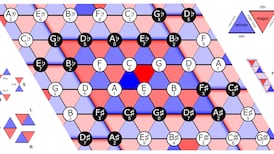Under the MicroscopeOn April 23rd, The Irish Timescarried a most interesting two-part article in the occasional Head2Headseries in which Martin O'Grady from the Institute of Technology, Tralee, and Áine Hyland, emeritus professor of education at UCC, presented opposite answers to the question: are standards falling in our third level colleges?, writes Prof William Reville
Martin O'Grady argued that there is no evidence of improved learning to justify the marked climb in grades at third-level. Hyland claimed that students get higher marks because they now have higher standards and they work harder than students did in the past.
I have never studied university standards of teaching per se, but I have worked continuously in universities since graduating with my PhD in 1973. All I can offer is an informed opinion, but there must be plenty of room for informed opinion when two experienced educators such as O'Grady and Hyland, who have long studied education, reach conclusions that completely contradict each other.
Compared to the pre-1970s, we are now into mass education at third level. In the early 1960s less than 5 per cent of 18-year-olds went on to higher education. Today that figure is more than 60 per cent. When I started work at UCC in 1975 we had slightly more than 3,000 students - today we have 16,000. Unfortunately neither lecturing staff nor infrastructural resources have increased in proportion, which means the individual student may receive less attention today than in the past.
For example, final year science students do a research project, which is obviously an important part of their training. In my Department, up until the mid-1990s, this project extended over two academic terms, but by then student numbers had grown to such an extent that they completely outstripped laboratory space and we were forced to cut the length of the projects in half. The same thing happened in most science departments. Clearly a two-month research project is of less quality than a four-month project and, in the logistical sense I described, mass-education at third level in itself tends to dilute quality.
Hyland emphatically claims that students now enter third level much better prepared than students in the pre-points-system era. This is not my experience, nor is it the opinion of most science or engineering lecturers I consulted. In our opinion, incoming students are now, on average, less numerate and less literate than they were in the 1970s, although they are also more confident and have a better work ethic. We realise that the average Leaving Certificate grades scored by the students now significantly exceed the average grades scored by incoming science students in the 1960s, but, as O'Grady points out, there has also been significant Leaving Cert grade inflation.
Surveys carried out by O'Grady and colleagues have shown that the proportion of first-class honours degrees awarded in the universities jumped from 7 per cent in 1994 to 17 per cent in 2005, an increase of 140 per cent. O'Grady comments caustically, "If grades continue to increase at these levels, every university student will receive a 'first' within 30 years". The improved grades reflect either improved student learning or dropping standards but O'Grady has found no evidence of improved learning. Grade inflation is an international phenomenon and occurred in the UK and US when third-level education expanded. Dr Garret FitzGerald and Forfás have sounded alarms at trends in Ireland.
Why would standards drop at third level? O'Grady's explanation is that universities have prioritised growth over standards. The Government is paymaster and wants more graduates. Vastly increased participation rates mean the proportion of weaker students entering third level is considerably increased. High failure rates are politically unacceptable, make your college unattractive to students and annoy the paymaster. So, the pressure is on lecturers not to fail students who perform poorly, but, to maintain a semblance of relative standards, more "firsts" must then be awarded. Hyland counters this by attributing the improvement in university grades to improved quality of student intake, not only academically but also in work ethic.
Universities are under political and logistical pressure in this era of mass-education to soften standards, but Hyland makes no concession at all on this point. On the other hand O'Grady makes no reference to the fact that students incoming from second level nowadays have a better work ethic and superior confidence than in the 1960s.
In my opinion, all things considered, students coming to university today are no better prepared than they were in the 1960s when I entered UCD. The best students today are as good as they ever were, but there is a big tail of very average ability. I think there is grade inflation at second level and we are seeing the start of it at third level. If students are rewarded beyond their level of performance they work less hard, further lowering performance, which calls for even more grade inflation to keep up appearances. The whole thing can spiral out of control. We should kill off this trend at birth lest it grow to strangle us.
This issue cuts right to the heart of what we are about in education. No letters from university academics have appeared in The Irish Times in response to Hyland's and O'Grady's articles. If these authors had written for and against an academic boycott of Israeli universities, for example, I have no doubt that passionate letters would have poured into the editor.
• William Reville is associate professor of biochemistry, and public awareness of science officer at UCC - understandingscience.ucc.ie









